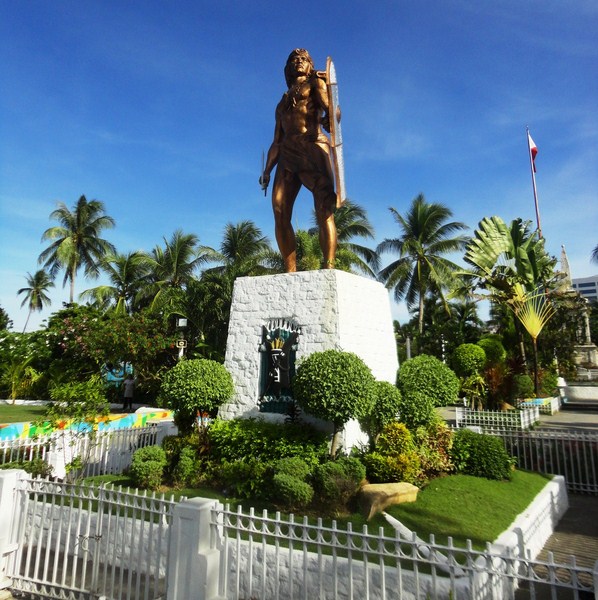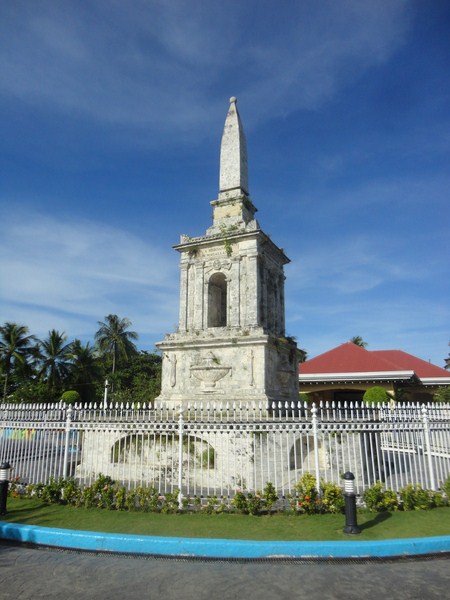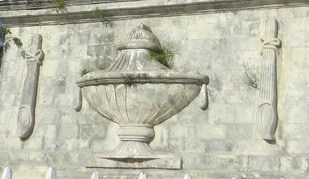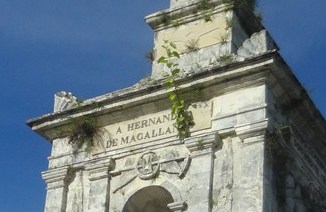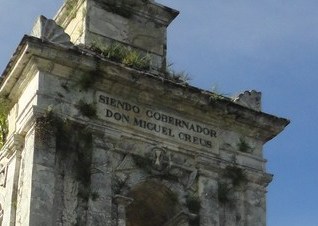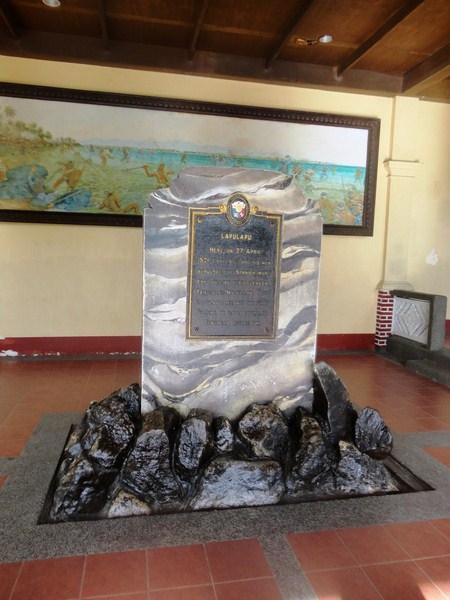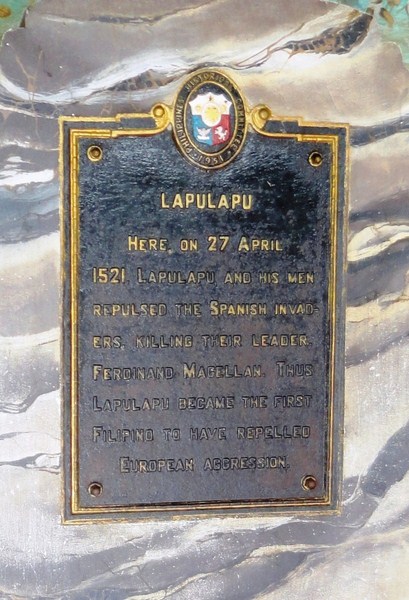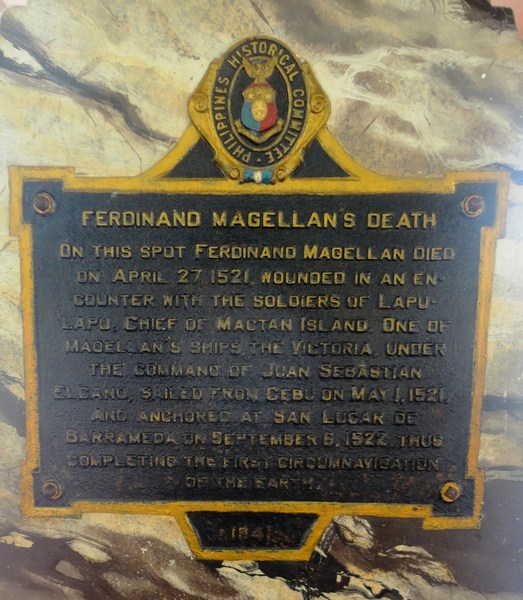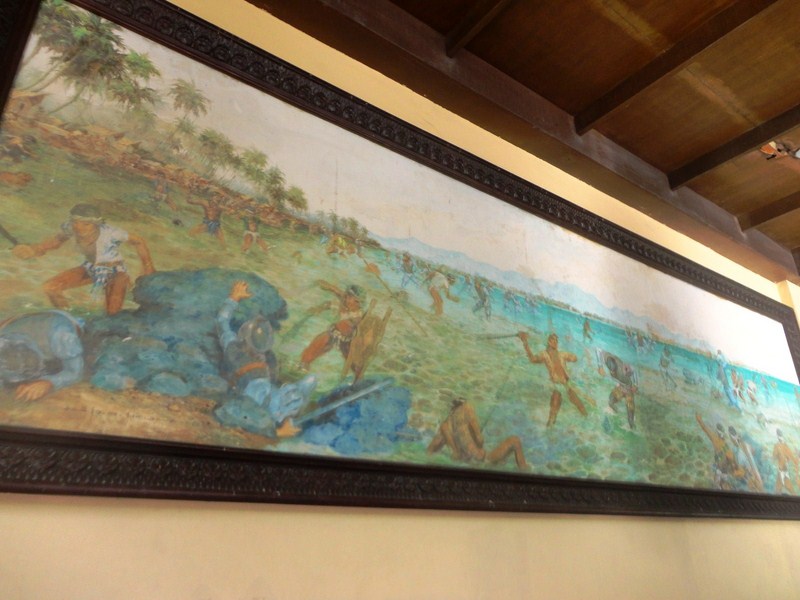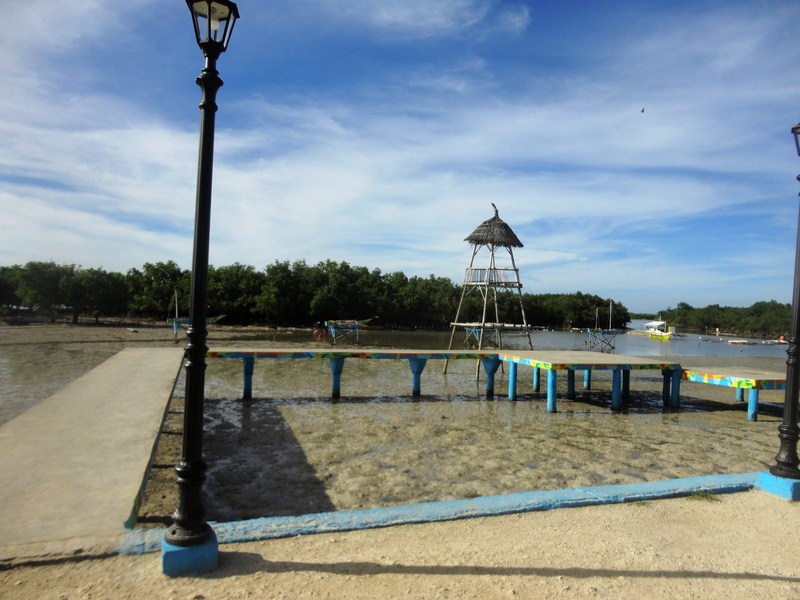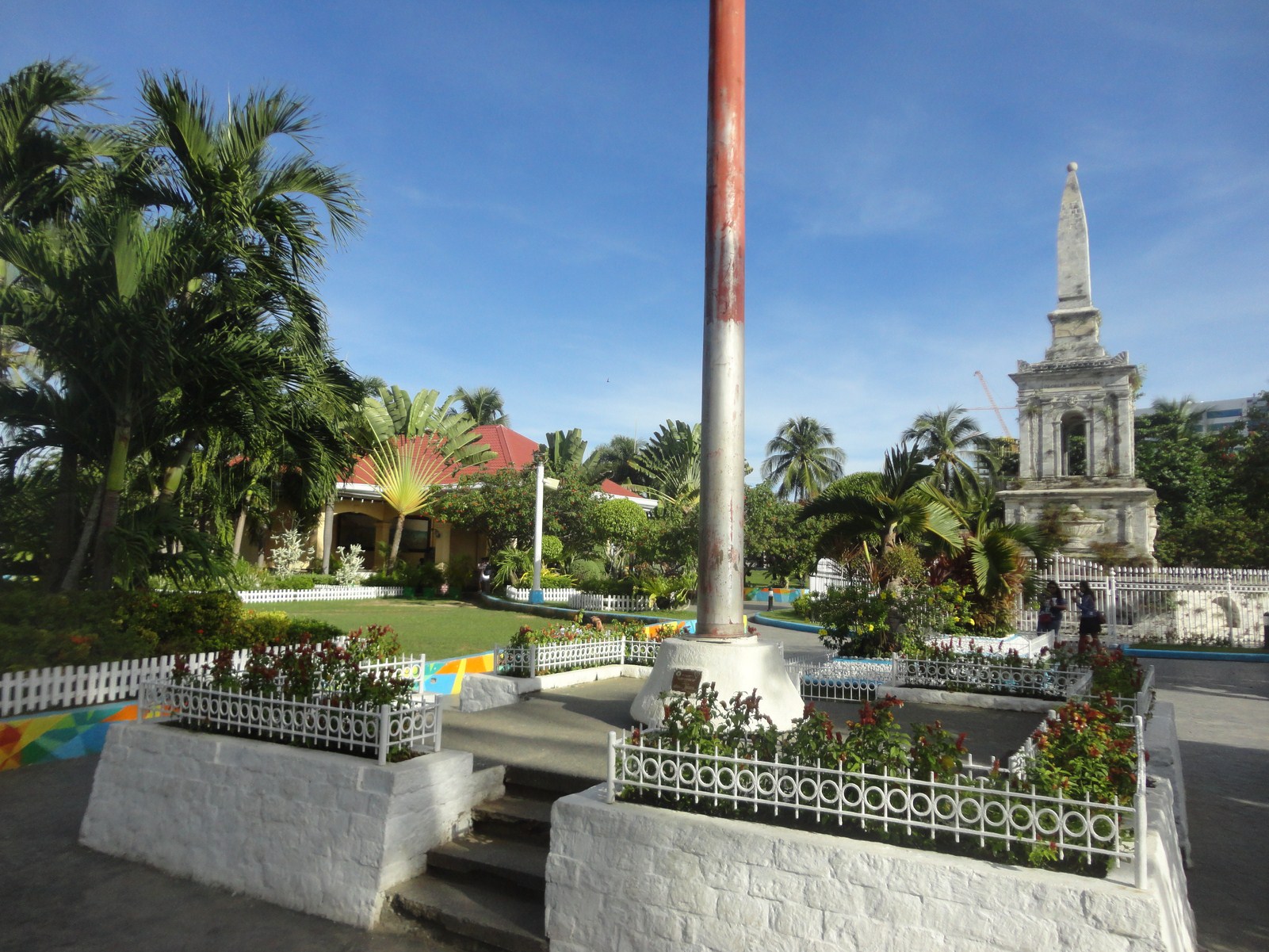
Mactan Shrine. On the left is the small building housing two plaques while on the right is the Magellan Monument
Part 4 of the Bluewater Maribago Beach Resort & Spa-sponsored City Tour
This shrine is dedicated in honor of Lapu-Lapu (the Philippines’ first National Hero) and the Portuguese explorer Ferdinand Magellan and was erected on the supposed spot where the Battle of Mactan (April 27, 1521) took place. The shrine has three prominent monuments
The 20-ft. high Lapu-Lapu Monument, beside the shore, features a bronze statue, on a pedestal, of Datu Lapu-Lapu, sculpted with great realism, holding a kampilan (curved sword) on his right hand and a shield on the left. The Magellan Marker, shaped like a large headstone, allegedly marks the spot where Magellan fell dead in the hands of Lapu-Lapu’s men.
A little farther away is the 30-ft. high Magellan Monument, on a base of several levels and surrounded by a low fence. It consists of plain, coralstone obelisk, on whose apex rests a sphere, mounted on a tall plinth that rests on a tripartite structure – an octagonal base, on which rests a tall quadrilateral structure, divided into a lower part, decorated with high relieves of vases, and an upper part pierced by narrow arches.
The monument is inscribed with texts. On one side is A Hernando de Magallanes, Ferdinand Magellan’s name written in the original Portuguese language.
On a second side is the phrase Glorias Españolas (“Glory to Spain”), on the third is the phrase Siendo Gobernaor Don Miguel Creus (the Spanish governor of the Philippines at the time) and on the fourth side is the phrase 1866 Reinando Ysabel II (the Spanish monarch at that time).
The monument was said to have been built in 1866 during the administration of Augustinian Fr. Simon Aguirre, who was cura (parish priest), from 1857 to 1871, of Opon (the old name of Lapu-Lapu City).
Between the Lapu-Lapu and Magellan monuments stands the Philippine flag. East of the Magellan Monument is a small building housing a plinth flanked by plaques.
The plaque about Lapu-Lapu (installed by the Philippine Historical Committee in 1951) reads:
Lapulapu
Here on 27 April 1521, Lapulapu and his men repulsed the Spanish invaders, killing their leader Ferdinand Magellan thus Lapu Lapu became the first Filipino to have repelled European aggression.
The other plaque about Ferdinand Magellan (installed by the Philippine Historical Committee in 1941) reads:
Ferdinand Magellan’s Death
On this spot Ferdinand Magellan died on April 27, 1521 wounded in an encounter with the soldiers of Lapu Lapu, Chief of Mactan Islands. One of Magellan’s ships, The Victoria, under the command of Juan Sebastian Elcano, sailed from Cebu on May 1, 1521 and anchored at San Lucar de Barrameda on September 6, 1522 thus completing the first circumnavigation of the earth.
Behind the plinth is a huge mural painting depicting the battle. The Battle of Mactan is reenacted along the shores near the shrine during the 27 April Kadaugan sa Mactan Festival.
Mactan Shrine: Punta Engano, Lapu-Lapu City, Cebu.
Bluewater Maribago Beach Resort & Spa: Buyong, Maribago, Lapu-Lapu City, 6015, Cebu. Tel: (032) 492-0100. Fax: (032) 492-1808. E-mail: maribago@bluewater.com.ph. Website: www.bluewatermaribago.com.ph. Metro Manila sales office: Rm. 704, Cityland Herrera Tower, 98 Herrera cor. Valero Sts., Salcedo Village, Makati City, Metro Manila. Tel: (02) 887-1348 and (02) 817-5751. Fax: (02) 893-5391.

